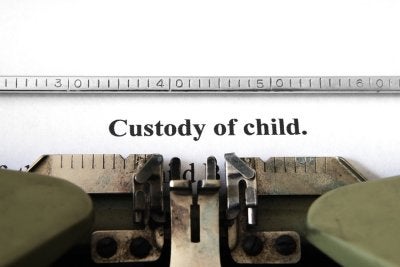-
Can I Temporarily Modify Child Support for the Summer?
When one parent is paying child support, he or she often wonders if it’s necessary to continue to pay when the children are staying at his or her house. For instance, if the children spend the summer with the non-custodial parent who pays child support, is it necessary to keep making payments during that time? Questions like these can be discussed with your family law attorney in Owings Mills , who can help you understand your rights to modify child support agreements.
Child support cannot be discontinued without a court order. Child support law requires that payments be made continuously, even when the children are staying with the parent making the payments. This is because the other parent still must maintain the household for the children to return to when any visit is over.
Your child support attorney can help you consider whether a modification could be appropriate for your case—for instance, if your earnings have changed after your divorce. Never adjust child support on your own without a court order, as you could face legal trouble over back payments.

-
Terminating Child Support
During a divorce, issues such as child custody and child support payments are determined with the help of your lawyer in Owings Mills . However, when a child’s eligibility for child support has ended, the parent responsible for such payments can petition to terminate the obligation for continued support under Maryland child support law.
If you wish to terminate child support, you must file a court form that states the reason why the support is no longer necessary. These reasons can include the child’s age, marital status, or even his ability to self-support without additional financial assistance. You can find out more about the process of terminating child support mandated by your divorce agreement and how your family attorney can help you if your former spouse or child dispute your request by watching this short video.
-
How Is Child Support Determined?
Child support law is different from state to state, although parents in every state have a legal obligation to support their children. In Maryland, divorce law establishes a set of guidelines that the court is required to apply in order to arrive at the amount of the payment. When you consult a family law attorney near Pikesville, he or she can answer any questions you may have about divorce law and child support payments.
Completing a Financial Statement
 The family court requires parents to complete a financial statement , sometimes referred to as a financial affidavit. This document is helpful for organizing your income and expenses. You will be required to provide accurate information about your total monthly income, alimony you are either paying or receiving, and child support you may already be receiving. You should expect to be required to provide documentation supporting these figures, so it is important that they are accurate. The financial statement also requests information on the child’s expenses, including the monthly health insurance premium, extraordinary monthly medical expenses, school and transportation costs, and monthly child care expenses. The child care expenses must arise from work needs. In other words, you can count payments to caregivers who watch your child during your work hours. Extraordinary medical expenses are those that are not covered by insurance and total more than $100 per condition or illness.
The family court requires parents to complete a financial statement , sometimes referred to as a financial affidavit. This document is helpful for organizing your income and expenses. You will be required to provide accurate information about your total monthly income, alimony you are either paying or receiving, and child support you may already be receiving. You should expect to be required to provide documentation supporting these figures, so it is important that they are accurate. The financial statement also requests information on the child’s expenses, including the monthly health insurance premium, extraordinary monthly medical expenses, school and transportation costs, and monthly child care expenses. The child care expenses must arise from work needs. In other words, you can count payments to caregivers who watch your child during your work hours. Extraordinary medical expenses are those that are not covered by insurance and total more than $100 per condition or illness.Evaluating Imputed Income
Imputed income is income that a spouse does not actually earn, but is capable of earning. In other words, if the other parent of your child chooses not to work, but is not considered disabled, the court may apply imputed income to the child support formula. In order to do so, the court must determine that the other parent is voluntarily impoverished. Evidence of voluntary impoverishment may include the parent’s medical records, level of education, job-seeking efforts, and work history.
Adjusting the Calculated Amount
The court uses all of these factors to calculate the amount of child support that the noncustodial parent is required to pay. However, if the parents have a combined income of more than $15,000 per month, the court is not required to follow this formula. Instead, the court can evaluate the needs of the children to establish an acceptable child support obligation.
-
How Is Child Support Enforced?
Child support is one of the many issues that will be negotiated by your divorce lawyers in Ownings Mills when you end your marriage, but the agreement only works when the responsible party pays. What happens if child support payments aren’t made after divorce? Watch this video to learn more.
Child support agreements can be enforced through a court hearing in which your child support attorney can demonstrate that the payments are missing and your ex-spouse has an opportunity to show why he or she is not making payments. Child support groups also exist in each state to enforce child support law. Consult with your divorce attorney before pursuing any action to determine the best strategy for enforcing your support agreement.
-
What to Expect in a Child Custody Dispute?
A child custody dispute can be stressful for everyone involved because it often causes extremely emotional issues to surface. Going into a dispute with a focus on what is best for the children and the assistance of a child custody attorney near Owings Mills will help you navigate the issues surrounding this complicated part of the divorce process. When you enter into a dispute over child custody, here is a look at what you can expect.
Negotiation
In some cases, parents can negotiate a child custody agreement with the help of their divorce lawyers. During this negotiation, you will figure out issues such as which of the types of child custody is appropriate for your case, where and when the children will spend time and who is able to make decisions about the children’s lives, such as their schooling and healthcare. If both parents are civil with each other, often these negotiations facilitated by child custody lawyers are easier than going to court. If negotiation doesn’t work, then your attorney will seek a court date for a judge to hear your dispute.
Case Preparation
 To prepare for your court date, your lawyer will gather information from you to support your argument for the type of custody agreement you want. Courts make decisions based on what is best for the child, so you may need to demonstrate that you have a stable home that gives children easy access to their school, friends, and activities. Showing that you have been the primary caregiver in the past or that your spouse is unable to provide the children with the care they need because of his or her work schedule or personal life is also helpful. Your attorney will carefully gather evidence to support your custody request.
To prepare for your court date, your lawyer will gather information from you to support your argument for the type of custody agreement you want. Courts make decisions based on what is best for the child, so you may need to demonstrate that you have a stable home that gives children easy access to their school, friends, and activities. Showing that you have been the primary caregiver in the past or that your spouse is unable to provide the children with the care they need because of his or her work schedule or personal life is also helpful. Your attorney will carefully gather evidence to support your custody request.Court Testimony
Your lawyer will present all of the information necessary to support your case to the court. You may also be called on to answer questions and to fight back against allegations made against you by your ex. Depending on the age of your children, the judge may also consider their preferences. Typically, judges seek this information in a private meeting away from each parent to put the child at ease.
-
Preparing Your Children for a Custody Dispute
For the sake of the kids, it’s always preferable to resolve child custody issues amicably. You may find that many issues are resolvable through compromise when both parents prioritize the best interests of the children. Unfortunately, achieving mutual agreements isn’t always possible. If divorce mediation fails to resolve the dispute, a judge, like those found in Baltimore Countymust resolve the child custody case. Your divorce lawyer is likely to advise you to avoid involving your child in the dispute as much as possible.
Discussing the Divorce
 Avoid discussing the divorce with your kids until you are certain that it will go forward. If possible, it may be a good idea for both parents to sit down with the kids to explain that they are going to live apart from now on. Use age-appropriate language to tell the kids that although both parents still love the kids very much, they’re not going to be married any longer. Depending on the children’s ages, they may ask which parent they will live with. Since the child custody case hasn’t been resolved yet, you can simply tell them that they will still be spending plenty of time with each of you and that neither parent will “disappear” from their lives.
Avoid discussing the divorce with your kids until you are certain that it will go forward. If possible, it may be a good idea for both parents to sit down with the kids to explain that they are going to live apart from now on. Use age-appropriate language to tell the kids that although both parents still love the kids very much, they’re not going to be married any longer. Depending on the children’s ages, they may ask which parent they will live with. Since the child custody case hasn’t been resolved yet, you can simply tell them that they will still be spending plenty of time with each of you and that neither parent will “disappear” from their lives.Explaining the Custody Evaluation
In contested child custody cases, the judge may order that a child custody evaluation be completed. A court evaluator is a neutral third-party who will interview both of the parents, the children, and perhaps other parties such as teachers, counselors, and other family members. The court evaluator may visit each parent’s home. Parents are advised never to prepare kids to answer questions in a certain way. Rather, the kids may be told that the evaluator is trying to help the parents work through their issues and that the kids should answer any questions honestly.
Encouraging Open and Ongoing Communication
During a child custody dispute, kids may feel confused, anxious, and isolated. They may worry that the divorce is somehow their fault. It’s crucial to encourage your kids to discuss their worries and concerns. Listen to them without judgment. Reassure them that although you may not have all the answers right now, you will always love them and the situation will get better.
-
Does Remarriage Impact Child Custody?
Once a divorce has been finalized, an ex-spouse is at liberty to remarry if he or she chooses. In many cases, the remarriage will not create new child custody issues for families in and around Owings Mills. Maryland family courts cannot include the new spouse’s income in the calculations for child support; these obligations should in theory remain unchanged. However, the other parent may petition for a reduction of child support if the family attorney can demonstrate that the new spouse pays all or most of the custodial parent’s expenses. In addition, it is possible that remarriage will affect a spousal support order.
In certain cases, remarriage might affect the child custody arrangement. For example, if the remarriage precipitates a move out of state for the new spouse’s job, then the remarried custodial parent should consult a family lawyer as soon as possible. The divorce lawyer can advise the custodial parent as to any notification requirements for the relocation. The lawyer may also need to represent the custodial parent if the non-custodial parent contests the relocation and petitions for a modification in child custody.

-
Common Mistakes in Child Custody Disputes
As stressful as divorce can be on spouses, it’s even more challenging for children. Kids of any age can suffer psychological problems before, during, and long after a divorce. However, there are some steps you can take to mitigate the adverse effects of a child custody case litigated near Pikesville. In fact, some of these recommendations may even be mandated by the child custody order, such as the avoidance of disparaging the other parent in front of the child.
Avoid Using Your Child as a Messenger
 Even in an uncontested divorce, children can suffer significant psychological harm if they are made to be active participants in the logistics of child custody arrangements. Parents who wish to avoid communicating with each other may instead ask the child to serve as a messenger. It may seem relatively benign to ask a child to tell one parent that the other will be a little late picking up the child. But doing so sends a subtle message to the child that the parents are incapable of communicating with each other. It also exposes the child to the potentially negative emotional response of the parent who receives the message.
Even in an uncontested divorce, children can suffer significant psychological harm if they are made to be active participants in the logistics of child custody arrangements. Parents who wish to avoid communicating with each other may instead ask the child to serve as a messenger. It may seem relatively benign to ask a child to tell one parent that the other will be a little late picking up the child. But doing so sends a subtle message to the child that the parents are incapable of communicating with each other. It also exposes the child to the potentially negative emotional response of the parent who receives the message.Avoid Cutting Off Communication With the Other Parent
Talk to your family lawyer about including communication provisions in the child custody agreement. The document should include an arrangement for ongoing, regular communication between parents, as well as emergency contact information. While your ex-spouse may be the last person you want to talk with, cutting off communication or communicating through intermediaries is a grave mistake. For instance, it means that you may not discover that your child is struggling in school until the report card arrives or that you might not learn new medical information regarding your child.
Avoid Making Your Child Choose Sides
Parents may not directly inform a child that he or she must choose which parent he or she prefers, but even doing so indirectly can be irreparably harmful to the child. For example, avoid telling your child that he or she can pick which parent to spend a holiday with. Avoid disparaging the other parent in front of the child or asking your child to report on the goings-on at the other parent’s home. Above all, remember to put your child’s best interests ahead of your own.
-
Options for Enforcing Child Custody Decisions
 A divorce lawyer can help you handle complex child custody issues in Owings Mills , or anywhere in the Baltimore metro region, particularly when you are going through a contentious divorce. Whether you have a formal court order outlining your child custody agreement, or just a verbal agreement with your ex-spouse regarding child custody, there is no guarantee that your ex will adhere to the arrangement. Here are some of your options for enforcing child custody decisions.
A divorce lawyer can help you handle complex child custody issues in Owings Mills , or anywhere in the Baltimore metro region, particularly when you are going through a contentious divorce. Whether you have a formal court order outlining your child custody agreement, or just a verbal agreement with your ex-spouse regarding child custody, there is no guarantee that your ex will adhere to the arrangement. Here are some of your options for enforcing child custody decisions.What to Do When Your Ex Prevents Visitation
If you have a formal child custody order through the court, you and your ex-spouse are required to follow it to the letter. If your ex denies you visitation with your child on a day or date that you were awarded visitation through a child custody order, you may pursue legal remedies. If the situation occurs repeatedly, you should consult your family law attorney as soon as possible. He may need to send your ex-spouse a formal letter, or file a hearing request with the court. Some courts require partners to attend divorce mediation prior to scheduling a child custody hearing.
When You Should Call the Police
You should only involve the police in child custody issues if you fear for your child’s safety or welfare. You should not contact the police if your ex-spouse refuses visitation, or is late dropping your child off after visitation. You should contact the police if you suspect that your child is being abused, or if you believe your ex-spouse is not providing a safe environment for your child. You should also contact the police if you believe that your ex-spouse has taken your child out of the state or country without your permission.
When You Should Modify a Child Custody Order
A child custody order can be modified if one parent’s circumstances change, and the parent requests more or less visitation time with the child. This will almost always result in a modified child support order as well. You must also modify a child custody order if a parent plans on moving out of the state or country.
-
Defining Legal Custody
If you’re going through a divorce and are concerned about child custody in Owings Mills , or anywhere in the Baltimore metro region, you should hire an experienced family law attorney. He can help you understand child custody laws, request a child custody arrangement, and negotiate child support payments. Child custody is a legal arrangement involving the rights that each parent is awarded regarding the child’s physical and mental care.
There are two different types of child custody that can be awarded to a parent: physical custody, and legal custody. Physical custody is the determination of where a child lives on a day-to-day basis. Physical custody can be joint custody or sole custody, depending upon the results of divorce mediation or a judge’s order. Legal custody concerns the right of a parent to make long-term decisions about a child’s well-being and upbringing.
Legal custody allows a parent to make major decisions regarding religious education, choice of schools, cultural education, extracurricular activities, and health care. Legal custody is typically awarded to both parents, unless one parent is determined to be unfit or incapable of making these decisions. Joint legal custody requires that the parents consult with each other and reach agreements regarding the child’s upbringing and welfare.

